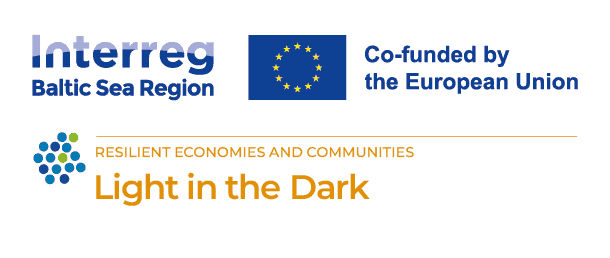
Extensive visitor analysis in key markets goes live
12 February 2024
Its goal is to profoundly impact the enhancement of tourism offerings, catering to the needs of tourists during the off-season.
Spanning an extensive area, the survey targets the Klaipeda region in Lithuania, Kurzeme region in Latvia, the coastal areas and islands of North and West Estonia, the East Coast of Finland along with the Turku Archipelago and Åland Islands, and the Stockholm archipelago in Sweden. The survey’s findings are anticipated to offer invaluable insights for tailoring tourism offerings to better meet the evolving needs of nature enthusiasts.
The survey marks the inaugural activity of the “Light in the Dark” project, an initiative aimed at enhancing resilience in rural and coastal tourism through the development of off-season experiences. This crucial task is spearheaded by researchers from Klaipeda University—Prof. Dr. Diana Šaparnienė, Dr. Daumantas Bočkus, and Rasa Rupuliavičienė—who are entrusted with the responsibilities of data collection, analysis, and report preparation. Additionally, an easily accessible report of the key findings will be made for SMEs and DMOs.
With an objective to engage 500 participants from each project partner country (Lithuania, Latvia, Estonia, Finland, and Sweden) as well as key target markets (Germany, France, the United Kingdom, and Poland), the survey promises to deliver a rich dataset. This data will not only facilitate the implementation of subsequent project activities but also enrich the overall understanding of nature tourists’ profiles and needs.
After meticulous preparations to refine the questionnaire, the survey is scheduled to launch on February 12. The anticipated completion of the report by mid-May marks a critical milestone in the project’s timeline. This endeavor represents a significant step towards enhancing the allure and sustainability of nature tourism in the Northern Baltic Sea Region, promising to deliver experiences that resonate with tourists throughout the year.
Dr. Daumantas Bočkus, Klaipeda University





